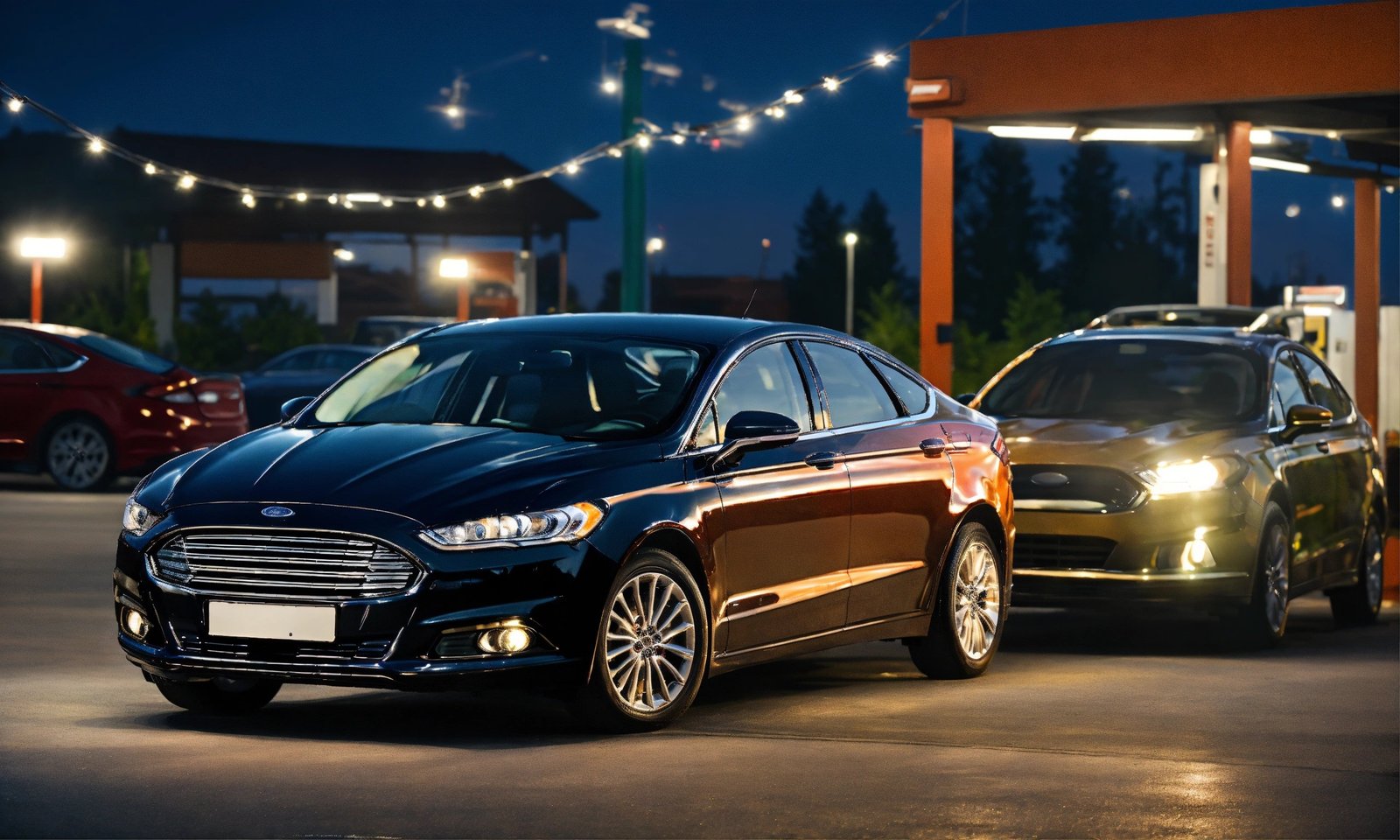Introduction
What exactly is a smart car
Before we discuss the weight of a Smart car, let’s define the phrase “Smart car”. The expression can have two meanings:
An all-purpose word for high-tech vehicles:
Any car with features like internet access, driver-assistance programs, and even some degree of autonomous driving qualifies as a smart car in this context.
The particular brand “smart”:
This describes the two-seater, ultra-compact vehicles made by Smart Automobile Co., Ltd. When we talk about weight, we’ll be talking about these Smart automobiles.
What a smart car weighs on average
It is significant to remember that a Smart car’s weight can change based on the model and year of the vehicle. A Smart car typically weighs about 1,550 pounds, according to Way. Nevertheless, the weight may vary based on the car’s particular model. For instance, the Fortwo EQ, the smallest gas-powered vehicle, weighs just 1,000 pounds, although the 2,998-pound Forfour Brabus version is heavier. Because they have larger battery packs, electric Smart cars are typically heavier. For instance, the Forfour Electric weighs about 2,500 pounds.
Popular Models of Smart Cars and Their Masses
Intelligent ForTwo
• The classic two-seater, which comes in electric and gasoline versions.
• Weight (1,550–1,750 pounds) with gasoline.
Mass (electric) It has a weight of 2,998 to 2,500 pounds.
Smart ForFour
A slightly larger four-seater variant that maintains excellent municipal design and energy efficiency.
1,850–2,250 pounds in weight.
The Smart EQ ForFour
It is an environmentally friendly electric version of the ForFour that offers more capacity and functionality.
3,100 to 2,800 pounds in weight.
Smart Brabus
A high-performance version of the ForTwo that provides a more significant machine for daily driving.
1,700–1,800 pounds in weight.
The BMW i3
Due to its revolutionary materials and futuristic appearance, the BMW i3 weighs around 2,961 pounds, making it a vehicle that is highly visible.
Chevrolet Bolt
A small electric vehicle that strikes a compromise between weight, features, and size is the Chevrolet Bolt, which weighs about 3,563 pounds.
Model 3 Tesla
The brand’s dedication to producing lightweight, highly functional cars is demonstrated by the Model 3, a market pioneer in the electric car industry that weighs about 3,549 pounds.
A Nissan leaf
The well-known electric car Nissan Leaf, which weighs about 3,433 pounds, exemplifies the brand’s focus on economy and sustainability.
Elements Affecting Smart Car Weight

Type and Size of Batteries:
The type and size of a smart car’s battery is one of the main elements affecting its weight. The battery technology used by different manufacturers have an effect on the vehicle’s total weight.
Content of Materials
A smart car’s weight is mostly determined by the materials that were used for construction. To improve overall performance, manufacturers try to achieve a balance between weight, safety, and durability.
Supplementary Features
A smart car’s overall weight increases when it incorporates advanced amenities like cutting-edge entertainment systems and autonomous driving capabilities. In order to satisfy customer expectations, producers must strike a balance between these aspects.
Model Variations and Size
The weight of a smart car is also determined by its model and size. Larger models may favor extra features, adding weight, but smaller models are typically lighter and more maneuverable.
Optional gasoline Tank Size
Bigger tanks: Although uncommon in Smart cars, some variants come with larger gasoline tanks that add a few pounds when full, providing for more range.
Importance of Knowing Smart Car Weight
For several reasons, it is surprisingly important to know how much your Smart car weighs, or any other vehicle.
The way in which things are performed and handled:
Braking and Acceleration: Driving a lighter car makes it easier to stop and accelerate faster, which makes it more responsive and nimble.
Improved gas mileage and reduced pollutants are typically the results of lighter vehicles’ lower fuel consumption.
Cornering and stability:
When navigating a metropolis with plenty of curves, handling and stability are improved by a lower center of gravity and balanced weight distribution, which are accomplished with lighter materials.
Battery life:
Shorter battery life can be a result of higher energy usage in a heavier smart car. For wise automobile owners to maximize the performance of their vehicles, they must comprehend this correlation.
Safety:
Crashworthiness:
While all cars must meet safety standards, heavier vehicles offer more protection in collisions due to increased inertia. However, lighter cars can be more maneuverable, aiding in accident avoidance.
Stopping Distance:
Heavier cars necessitate longer stopping distances. Understanding your car’s weight helps you adjust driving behavior for safe following distances.
Practical Considerations:
Payload Capacity:
Knowing your car’s weight limit prevents overloading, ensuring optimal performance, handling, and tire longevity.
Bridge and Road Restrictions:
Awareness of your car’s weight helps you avoid exceeding weight limits on bridges and roads, avoiding potential dangers and legal issues.
Maintenance and Repairs:
Wear and Tear:
Heavier vehicles often experience more wear on components like brakes and tires, potentially leading to higher maintenance costs.
Additional Benefits:
Informed Decision-Making:
When comparing Smart car models or selecting optional features, understanding weight implications enables informed choices aligned with your priorities.
Better Understanding of Your Car:
By grasping the factors influencing weight, you develop a deeper appreciation for the engineering and design choices behind your Smart car.
The weight of a smart car directly influences its acceleration and deceleration capabilities. Lighter cars often exhibit better acceleration, providing a zippy driving experience.
The Weight of Smart Cars and Their Efficiency
Use of Energy
Smart automobiles that weigh less generally use less energy, which lowers the environmental effect and expenses associated with charging.
The Effect on the Environment
Lighter smart car weights have a good impact on the environment and are in line with the global movement toward environmentally friendly transportation.
Costs of Upkeep
Long-term affordability is aided by owners of smart cars making well-informed selections by knowing the correlation between weight and maintenance expenses.
Innovations and Difficulties
Overcoming Obstacles Associated with Weight
Manufacturers are always trying to find new ways to solve weight-related problems with materials and design techniques so that safety is not compromised and performance is maximized.
Trends for Lighter Smart Cars in the Future
Looking ahead, the automobile sector is probably going to see developments in the area of smart car weight reduction, providing customers with even more environmentally friendly and effective choices.
Advice for Owners of Smart Cars
Recognizing Your Car’s Weight: In order to improve their understanding of their vehicle’s performance characteristics, smart car owners are advised to become acquainted with the weight of their car.
Maintenance Points to Remember
Regardless of weight, routine maintenance—such as tire and battery inspections—is essential to maximizing the operation of a smart automobile.
Driving Pointers for Maximum Efficiency
Using energy efficiently and extending battery life are two benefits of adopting efficient driving techniques including smooth braking and acceleration.

